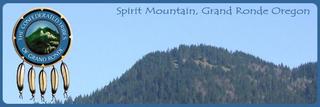Tuesday, November 16, 2004
blogroll
-
-
-
http://doc.weblogs.com/
-
http://doc.weblogs.com/2004/11/16#sometimesYouGetLucky
I'm loving the Alexis Park Hotel, because it's providing excellent fodder for my talk tomorrow at Apachecon. (To my Apachecon friends: don't worry; I'll be nice.)
I will say it was great to get away last night to Bellagio, and one of the finest dinners, ever, at Picasso.
Ben Hyde got lucky too. A very attractive woman just ran up to me and told me my lap top is extremely cute! He declined to say if he was talking about a computer...
-
http://doc.weblogs.com/2004/11/16#theShortAnswerIsNo
Sheila Lennon, as so often, nails it with Does the message need the medium?, about the Online News Association event in Hollywood that Dave reported on as well. She runs with the opening remarks of AP chief Tom Curley, the crux of which is this line here:
The franchise is not the newspaper; it's not the broadcast; it's not even the Web site. The franchise is the content itself.
Then there's this set-up...
We are shifting from an old "telegraph" model of pushing news to our subscribers through proprietary pipelines to a database model, where our customers can retrieve what they want, when they want it, over the network....
To which Sheila adds this:
While this may be news to some in mainstream media, I immediately think of Cluetrain's Doc Searls, who hates the term "content." This snip of Doc at a Jabber conference (original link has vanished) explains it,
Hollywood sees the Net as a plumbing system for intellectual property and other content,
Geeks see the Net as a place - a commons - where people can make culture and do business.
Ask, "Who creates this 'content'?" and you've bridged the divide. Ask, "Who finances the creation of this 'content'?" and another problem emerges.
The Jabber source may be gone; but I've said the quoted lines a number of times in a variety of places. Here's a slide with that text, from a 2002 OSCon talk.
The problem, for the APs of the world, is that they can't stop thinking in terms of distribution, of piping, of moving the goods they call "content."
Funny thing about "content." I'll bet that AP didn't call their stories, features and other goods "content" until the dot-commies popularized the word in the late '90s. As John Perry Barlow says, "We didn't start hearing about 'content' until the container business felt threatened."
There are two big problems with the word "content." First, it treats creative works as container cargo, which is demeaning as well as misleading. Second, it denies the creative, transformative and essentially unfinished quality of all creative works. Plus their authority.
Google's PageRank, which organizes search results, doesn't treat linkable goods as "content," but rather as sources. The value of those sources is ranked by authority, determined by pointage from other sources, each of which are also ranked in the same way.
Keep "authority" mind as we revisit something I wrote more than four years ago:
Hackers didn't build the Net for business. They built it for research. They wanted to make it easy for people to inform each other, no matter who or where they were.
Several days ago Tim O¹Reilly and I were talking about information, which is a noun derived from the verb to form. We use information, literally, to form each other. So, if we are in the market for information, we are asking to be formed by other people. In other words, we are authors of each other. It follows that the best information is the kind that changes us most. If we want to know something — if we are in the market for knowledge — we demand to be changed.
That change is growth. Our identity persists, yet who-we-are becomes larger, because we know more. And the more we know, the more valuable we become. This value isn't a "brand" (a nasty word that comes to us from the cattle industry). It's reputation.
What these hackers made was an extraordinarily vast and efficient market for knowledge — a wide-open marketspace for information — where everybody gets to participate, to contribute, to grow, and to increase the value of their own reputations.
That's what's still behind the new ecosystem in which old news organizations need to find a new way.
-
http://doc.weblogs.com/2004/11/16#theWorldLivelierWeb
USA Today has a pile of RSS feeds, on 30 different subjects, with lots of essentially live news flow. Thanks to Big Rick for pointing out the URL, which shows the feeds coming from the marketing corner of the newspaper.
-
http://doc.weblogs.com/2004/11/16#smellsGood
Dave Slusher posts his Podcasting Recipe.
-
http://doc.weblogs.com/2004/11/16#whatItSortofWas
Mark Finnern has located the original artwork for this blog.
-
http://doc.weblogs.com/2004/11/16#wayToGoAgain
After starring at Bloggercon, Julie Leung makes the cover of the local paper at home. Lots of bonus links to other local bloggers in Bainbridge Island.
Wednesday, June 02, 2004
The Confederated Tribes of Grand Ronde Home Page

Tribal Casino Revenues Put to Good Use in Oregon
Once struggling to stay alive after the federal government sold most of its reservation and terminated its tribal status, the Confederated Tribes of Grand Ronde ( http://grandronde.org/ ) today operate one of the top ten charitable foundations in Oregon, Gambling Magazine reports.